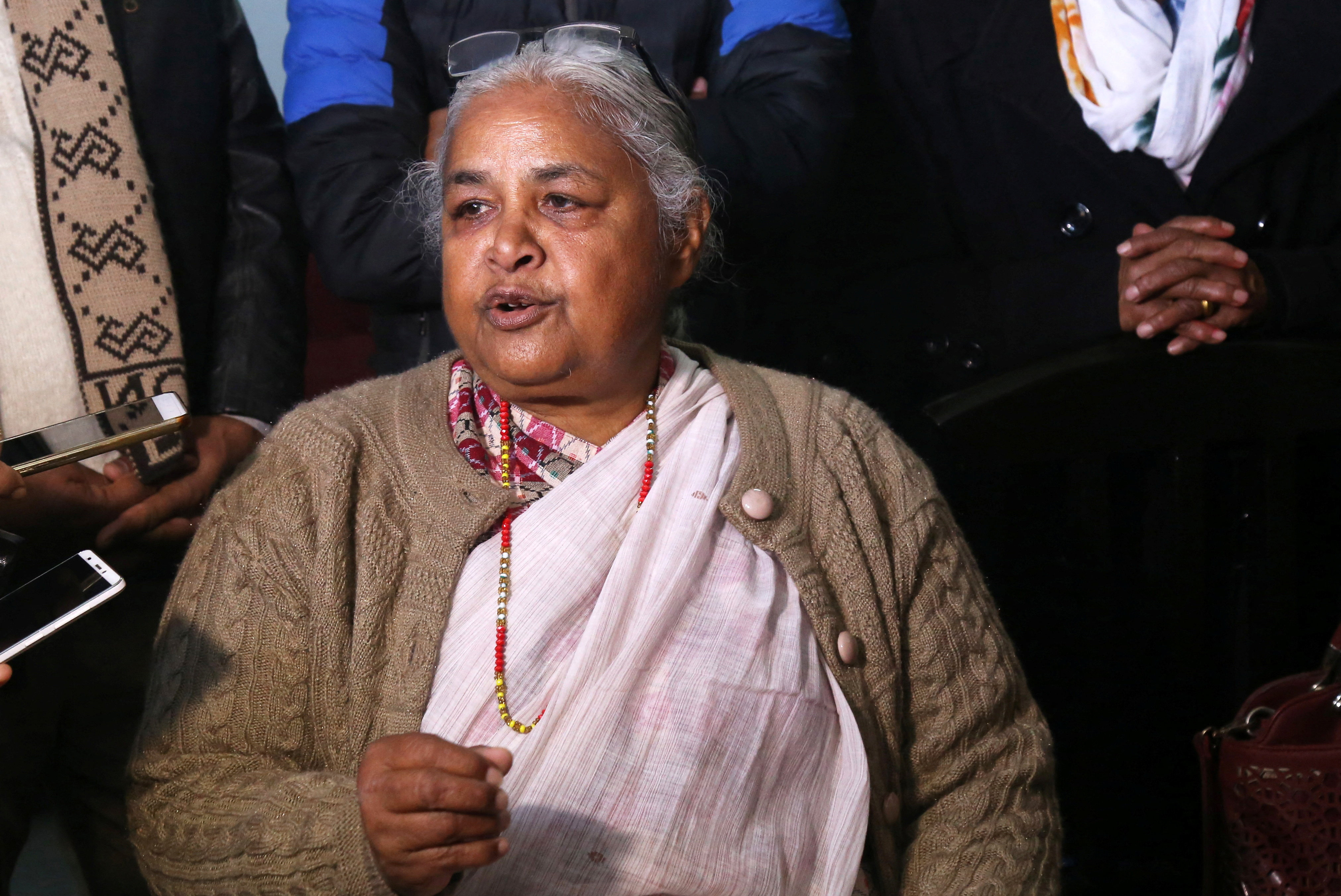Former chief justice Sushila Karki was sworn in as Nepal’s interim prime minister on Friday, becoming the first woman to lead the country after deadly anti-graft protests forced Prime Minister KP Sharma Oli to resign.
President Ramchandra Paudel administered the oath of office to Karki at the presidential palace in a ceremony broadcast live.
Karki’s appointment by the president followed negotiations between Paudel, army chief Ashok Raj Sigdel and the protesters who led Nepal’s worst upheaval in years.
Karki is tasked with holding fresh elections to the lower house of parliament by March 11, 2026, the president’s office said. She is expected to appoint other ministers in a few days, authorities said.
Fifty-one people were killed and more than 1,300 injured this week in anti-graft protests by the ‘Gen Z’ movement, named for the age of its mainly young supporters.
Gen Z protester Manjita Manandhar said she had “mixed emotions” over Karki’s appointment, which came after the death of so many young people during the unrest.
“But we did it!!!! For them! For New Nepal! The journey has just begun. We all Nepalis have to stay strong and put our best foot forward to make Nepal the best in the world. This is just the beginning,” she said.
The protest was sparked by a social media ban that has since been rolled back. The violence subsided only after Oli resigned on Tuesday.
The only woman to have served as chief justice, Karki was the preferred choice of the protesters who cite her reputation for honesty and integrity and her stance against corruption.
She held the top judicial post for about a year until mid-2017.
Bipin Adhikari, a constitutional expert and analyst, said Karki’s first challenge was to investigate the violence and destruction of public property during the protest and bring those responsible to justice.
“She must provide good governance, control corruption, maintain law and order, assure the people about the security conditions and make policing strong,” he said, adding that all these were major challenges.
RESTORATION OF NORMALCY
Nepal has grappled with political and economic instability since the abolition of its monarchy in 2008, while a lack of jobs drives millions to seek work in other countries and send money home.
As the country of 30 million people inched back towards normality on Friday – with shops reopened, cars back on roads, and police replacing the guns they wielded earlier this week with batons – families reclaimed the bodies of those killed in the protests.
Some roads were still blocked, although streets were patrolled by fewer soldiers than before.
“While his friends backed off (from the protests), he decided to go ahead,” Karuna Budhathoki said of her 23-year-old nephew, as she waited to collect his body at Kathmandu’s Teaching Hospital.
“We were told he was brought dead to the hospital.”
Another protester who died, Ashab Alam Thakurai, 24, had been married only a month earlier, his relatives said.
“The last we spoke to him … he said he was stuck with the protest. After that we could not contact him … eventually we found him in the morgue,” said his uncle, Zulfikar Alam.






Click here to change your cookie preferences